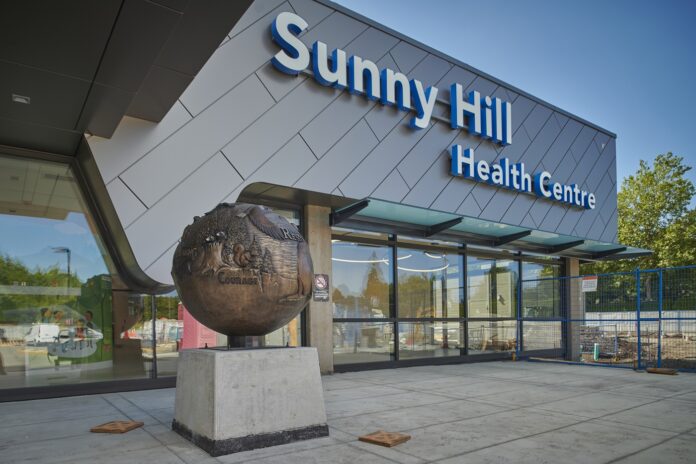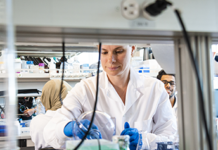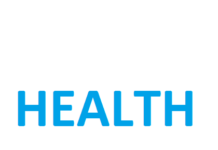CHILDREN and youth from across BC who need specialized acute rehabilitation and developmental assessments now have a state-of-the-art facility at the new Sunny Hill Health Centre at BC Children’s Hospital, which opens to patients this week.
Sunny Hill Health Centre has been providing specialized development and rehabilitation care for children and youth from across BC since 1961 in East Vancouver. Development and rehabilitation programs completed a move from Sunny Hill’s previous location to the state-of-the-art facility at BC Children’s Hospital on Oak Street on August 30.

“The new Sunny Hill Health Centre will offer cutting-edge care at BC Children’s Hospital,” said Adrian Dix, Minister of Health. “Sunny Hill, along with our government’s plans to build a new children’s complex care facility in East Vancouver, shows our commitment to helping kids and their families get the best care possible.”
The new Sunny Hill Health Centre at BC Children’s Hospital, a joint initiative of the Province of British Columbia and the Provincial Health Services Authority (PHSA), is an innovative, family-centred facility that will continue to provide specialized developmental assessments and rehabilitation care to children, youth and their families from across B.C.
The new facility is part of the third and final phase of the $676-million BC Children’s and BC Women’s Redevelopment Project which also included construction of the Teck Acute Care Centre and BC Women’s Urgent Care Centre.

The state-of-the-art space offers unique benefits and amenities to enhance care for children and their families. Benefits include:
* State-of-the-art equipment and technology, including an accessible therapy pool with movable floors; an open-concept gym with innovative therapy solutions, such as the bioness vector gait system for early and safe rehabilitation for patients and staff; an interactive therapy garden; and a high-tech motion analysis lab
* Families of Sunny Hill patients will no longer spend time travelling between East Vancouver and BC Children’s Hospital for medical and diagnostic appointments
* Increased collaboration and coordination with other BC Children’s services and clinical teams, streamlining the patient experience.
* Purpose-built clinical spaces specifically designed to accommodate the needs of children and youth who have hearing, visual and varied sensory abilities
* Family lounges, given patient appointments at Sunny Hill can often take several hours
Through donor support, additional funding was provided through BC Children’s Hospital Foundation’s Sunny Hill Enhancement Initiative that surpassed a fundraising goal of $14 million to help create a facility that is custom-built for the distinct needs of Sunny Hill’s patients and families. This initiative raised funds to help create a healing, welcoming environment at the new location through highly innovative technology, advanced purpose-built spaces, and specialized equipment. In addition, curated artwork from twenty-eight Canadian artists and five iconic community partners helps support the therapeutic needs of each space throughout the facility. Some of the spaces at the new facility, including the outdoor garden, have only been made possible through donor support.
A children’s complex care transition facility will replace the Sunny Hill Health Centre in East Vancouver. This campus of care will be fully integrated, patient and family-centred, and provide trauma-informed care in a culturally safe environment. The centre will support children in improving the quality of their lives, and those of their family, through education and building local care capacity for those moving back home from an acute care setting, but may not be ready for a full return, as well as helping to avoid crisis situations requiring admission to an acute care facility.













